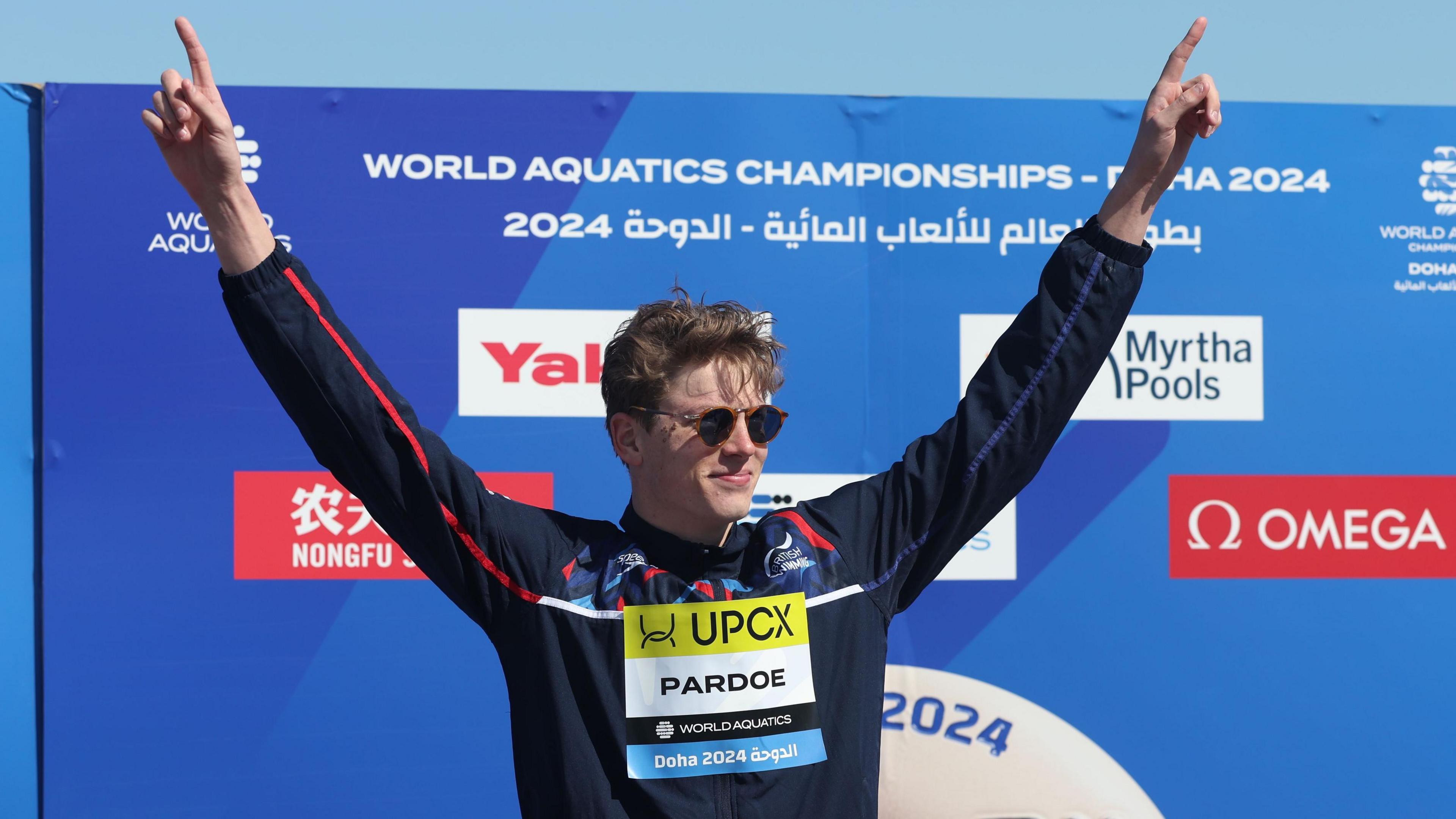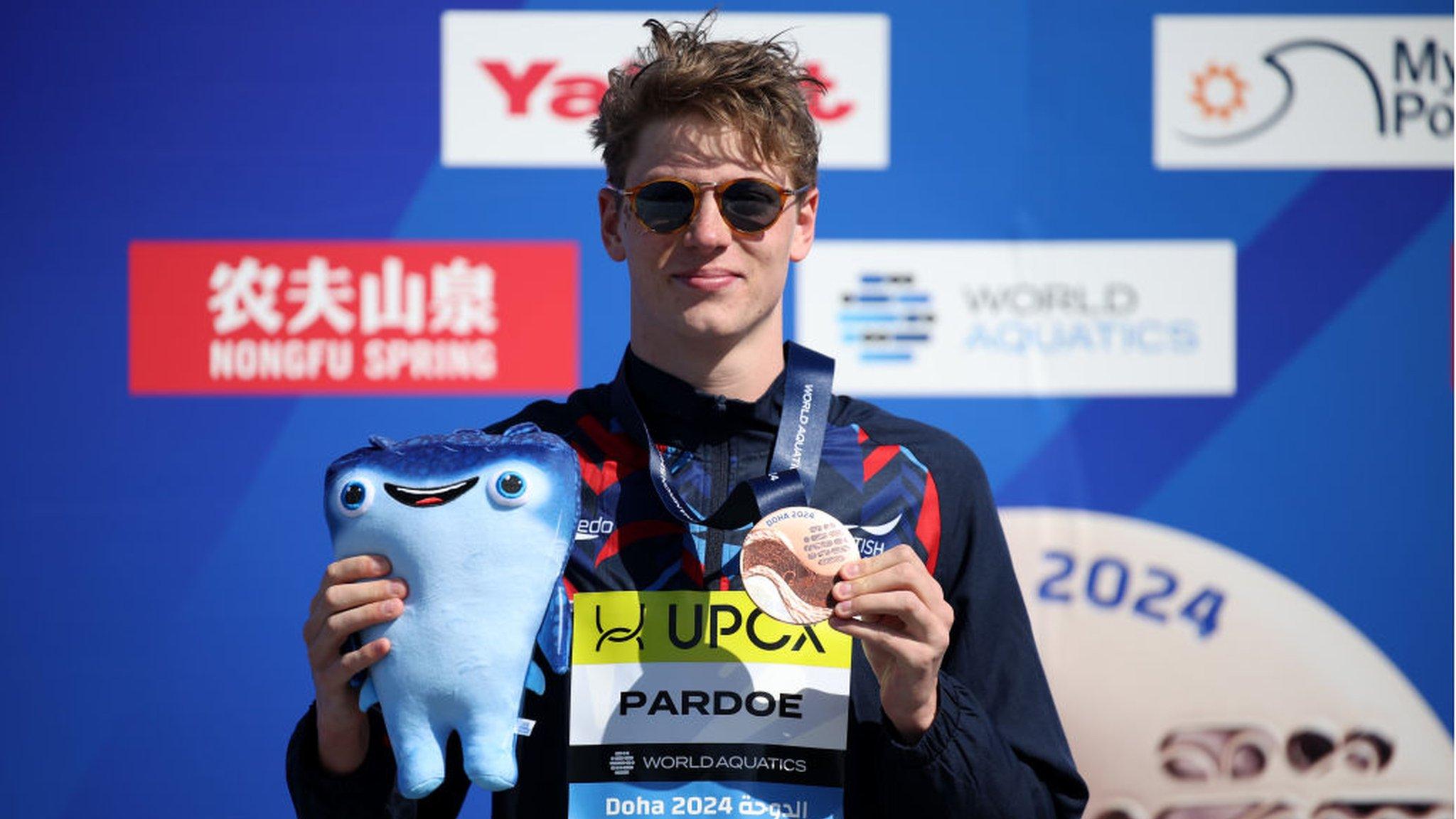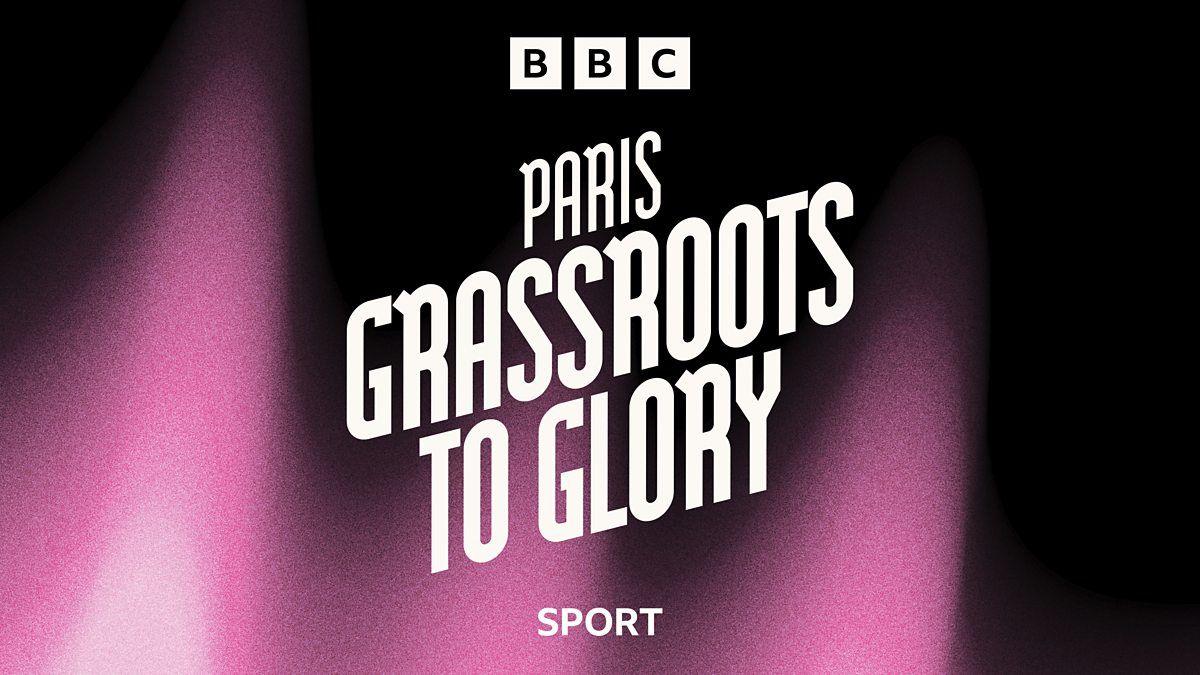Swimmer to write 'new narrative' at Olympics

The 23-year-old suffered an oculus concussion after being elbowed in the eye during the last Olympic Games
- Published
Marathon swimmer Hector Pardoe has said his event is a "contact sport" while speaking about an eye injury he received during the last Olympics.
The 23-year-old was elbowed in the eye by a competitor during the final lap of the race, suffering an oculus concussion meaning he was unable to see out of his eye.
Pardoe won bronze during the World Championships in Doha, and became the first British man to win a global open water medal since Welsh compatriot David Davies in 2008, and the first Brit to win a medal since Keri-Anne Payne in 2011.
The Welsh international, who grew up and trained in Shropshire, spoke to BBC Radio Shropshire as he prepared for the Paris 2024 Olympic Games - where he said he would be "writing a new narrative".
He said: "It was a hard pill to swallow and it's quite unheard of for an injury that severe to happen.
"But open water swimming is a physical sport - people have had their ribs broken before - but to get your eye injured to that extent hasn't happened to anyone.
"When you think of open water swimming you don't see it as a contact sport - it opened peoples eyes.
"There's more going on under the water than thirty guys trying to sprint to the end."
Looking back to his injury in Japan, Pardoe said he was passing a swimmer when he was elbowed in the eye.
"I had a bad start and was trying to capitalise on what I could and I was passing a swimmer when he elbowed me in the eye.
"Unfortunately it cracked my goggles, bust my eye open [and] I needed stiches.
"At the time I couldn't see out of my eye and I thought I lost my eye", he said.
The swimmer said he was actually experiencing oculus concussion, which meant he could not see out of his eye for ten minutes and unable to finish the race.
Pardoe, who trains at Loughborough College in Leicestershire, said he went into the race thinking he could "achieve something great".
The ordeal was a "psychological knock", he said, adding: "As a top sportsman you have to move on and see that the past is the past.
"I'm writing a new narrative - Paris is hopefully going to be that for me."
- Attribution
- Published4 February 2024

- Attribution
